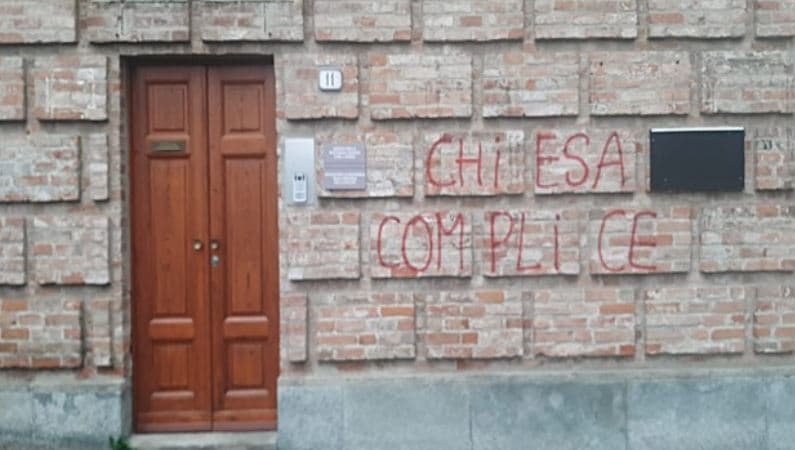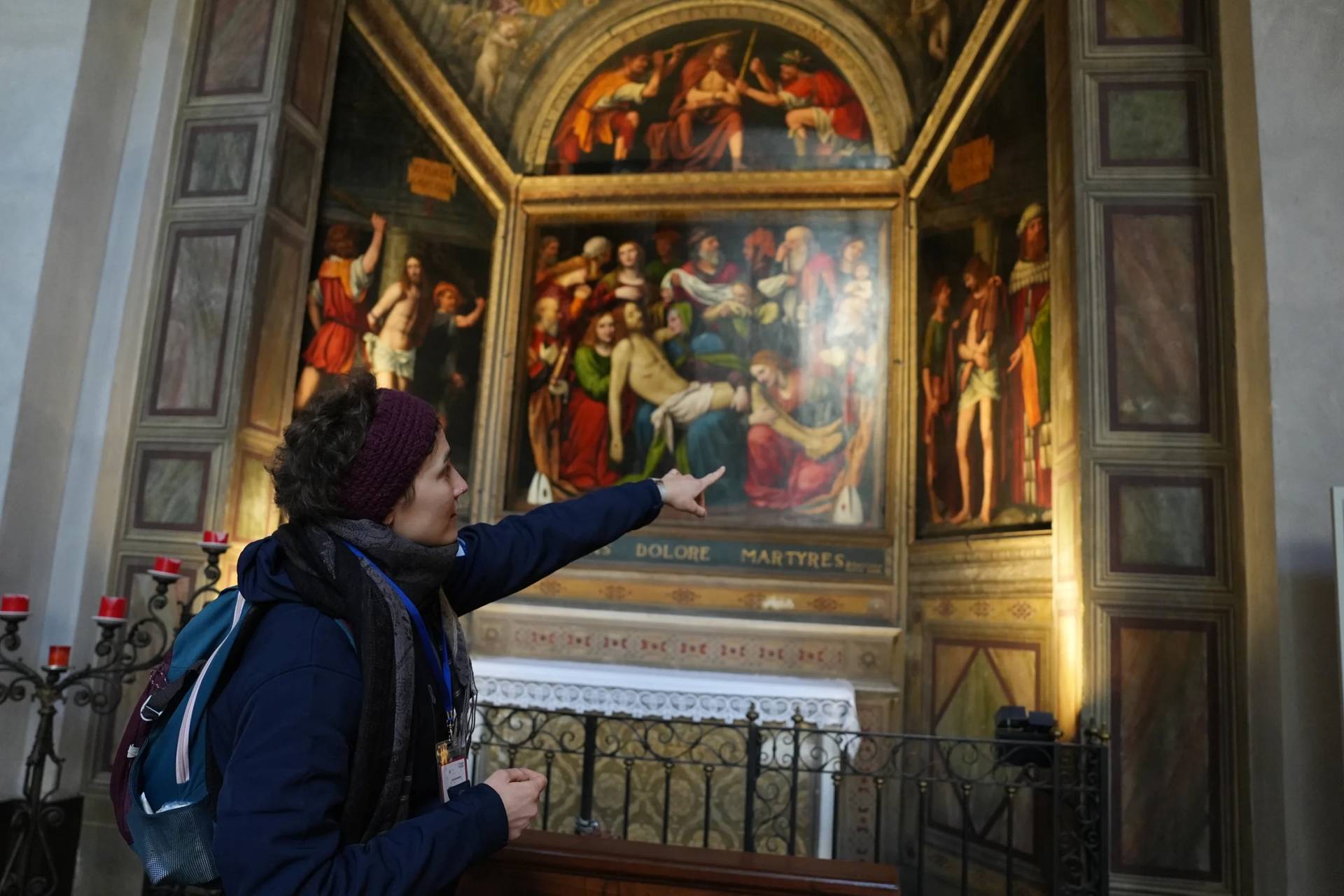ROME – Despite Catholicism’s broad reputation for being pro-migrant, especially in the Pope Francis era, in one northern Italian town the church has been accused, presumably by far-left activists, of complicity in the recent deaths of two young African migrants, one from Senegal and the other from Guinea.
On the morning of Dec. 13, the words Chiesa Complice (“the church is complicit”) were discovered scrawled in red spray paint next to the entrance to the headquarters of the Diocese of Alba. The graffiti came two days after the bodies of the migrants were discovered in an abandoned factory on the outskirts of Alba, a city of roughly 31,000 people in the northern Italian region of Piedmont.
The two young men were Loum Issa, 24, and Mamadou Saliou Diallo, 28, had apparently taken refuge in the factory after being unable to find space in a local shelter. Investigators believe they built a fire inside the factory and were warming themselves with a small stove before eventually succumbing to carbon monoxide poisoning.
According to a statement from the Caritas office of the Alba diocese, Issa and Saliou both had valid Italian residency permits, meaning they were not illegal immigrants. Isssa lived in Alba, the statement said, while Saliou had resided in a small community on the outskirts of Turin, about an hour to the north.
According to background provided by Caritas, Issa arrived in Italy with his father and made his way to Alba in 2021. At first he seemed to prosper, finding a job as a factory worker with the help of Caritas that began as an internship, but then became full-time employment. During that time, he was living in an apartment subsidized by the city with another young man.
Earlier this year, things started to fall apart. Issa lost his work and survived on odd jobs, and he began eating at the Caritas soup kitchen. At one point he was sleeping in another abandoned factory, until the another squatters were forced out.
Saliou arrived in Italy from Guinea around 2020 and settled in Turin, for a time eating at a soup kitchen run by the massive Catholic charitable operation Cottolengo, named for its 19th century founder, St. Giuseppe Benedetto Cottolengo. He apparently joined a roving caravan of manual laborers that moved around northern Italy, eventually spending some time in Alba working in local vineyards.
Issa and Saliou became friends and sought various solutions for temporary housing, ending up together in the fateful abandoned factory.
In the immediate wake of the discovery of the deaths, a far-left group in Alba which defines itself as part of the Antifa movement called the “Mononoke Collective” issued a statement asserting that Issa and Saliou were victims of an “unjust society.”
“They died from cold,” the statement said. “They were assassinated by an unjust society, by a city that spends millions to advertise luxury products but doesn’t find time to think about the least among us, and instead steals well-being by exploit their slave labor.”
(The reference to “luxury products” likely is linked to Alba’s reputation as a producer of high-end white truffles.)
A local branch of the Green Party likewise linked the deaths to broader injustices.
“It’s no accident if there still people living on the margins,” its statement said. “It’s the inevitable result of a system that ignores, that pretends not to see, that prefers to look the other way and to sweep the dirt under the rug.”
In those circles, there was apparently grumbling that the church should have done more to prevent the deaths of Issa and Saliou, leading the local Caritas office to release its own statement.
“Today we cry for two young men, Caritas did everything possible,” it said, “but facing the cruelty of the world and free will, we can only implore the mercy of God.”
Although no one has yet claimed responsibility for the graffiti at the diocesan headquarters, in the past the Mononoke Collective in Alba has staged anti-church protests.
In September, the group staged a rally claiming that the church has extensive real estate holdings while doing nothing for immigrants or in the fight against exploitative labor practices. In response, a Caritas official invited them to tour the various social service projects the church runs in the city, adding that “there would also be a place for them among the volunteers who work there.”













